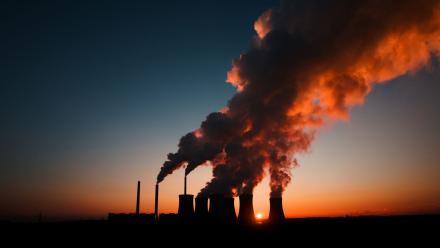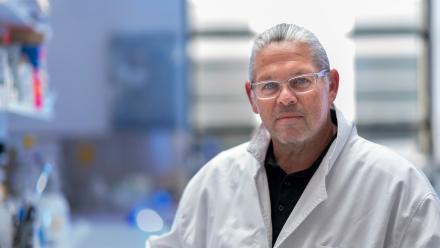There is hope in action
The goodwill that science has generated must now be harnessed for our biggest challenge
Brian Schmidt outlines why he and another 125 Nobel Laureates are calling on G7 leaders to act on climate change.
This Friday, world leaders from the G7 - Canada, France, Germany, Italy, Japan, the UK and the United States - will meet in Cornwall to canvass the major challenges our planet faces.
Undoubtedly, climate change will be high on their agenda. And for good reason. It is the most significant challenge we face.
That's why ahead of the summit, I and another 125 Nobel Laureates, have issued a statement urging all G7 leaders to take urgent action on climate change.
Without transformational action this decade, humanity is taking colossal risks with our common future. Societies risk large-scale, irreversible changes to Earth's biosphere.
It's an unprecedented statement and call to action from Nobel Laureates.
As our statement says: "Time is running out to prevent irreversible changes. The long-term potential of humanity depends upon our ability today to value our common future. Ultimately, this means valuing the resilience of societies and the resilience of Earth's biosphere."
For many, heading off cataclysmic climate change appears so huge and so difficult that it may seem futile.
But I honestly believe that any sense of despair can be overcome by hope - the hope is global action.
Climate change is the issue of our time. But it is not just the issue of our time. It is the issue of our children's time, their children's time and their children's children's time.
There is no doubt the climate crisis is here.
We must act. We cannot afford not to act.
And action is possible.
As I told the 2021 UN Climate Adaption Summit earlier this year, the solution, the key to action, lies in using science urgently, at scale and in collaboration.
We have done this with the issue of the day - COVID-19.
Governments across the globe have shown they can use science and listen to the experts to meet the existential threat this virus poses.
By tackling COVID-19, science undertaken with urgency, scale and international cooperation has proven its undeniable value to humanity.
The goodwill that science has generated must now be harnessed for our biggest challenge.
As in the pandemic, science employed with the necessary scale, urgency and global collaborations is the only answer.
As we look to rebuild after the pandemic, there is a once-in-a-generation opportunity to reshape our world and meet the threat of climate change.
Now is the time to invest in and drive the innovative climate solutions we already have at our disposal to create new jobs, to stimulate our economies, to develop the industries and products of tomorrow, while at the same time building a climate resilient, a climate smart and a climate just future.
For Australia - which is such a large per capita contributor to global emissions and which has such abundance of natural renewable resources - the answer lies in scaling up clean energy generation as soon as possible.
While we have a moral obligation to act, Australia is once again the lucky country. We have some of the best renewable resources in the world.
I am proud to say this is exactly what we are doing at ANU.
We are investing in major research to transform Australia's backyard into a green energy provider for our neighbours - the Asia-Pacific.
We have brought our world-leading expertise and thinking on climate change, energy transition and disaster solutions under the one umbrella.
We are working on electric vehicle and battery solutions, as well as improving solar cells - making all this vital technology more accessible and cheaper.
Our experts are working on carbon sequestration to keep harmful emissions in the ground and out of the atmosphere.
And just the other month, we announced our ambitious target to make sure ANU reaches net negative carbon emissions by 2030 - one of the first universities in Australia and the world to make this commitment.
We have the brains to get there. More importantly, we have the will. We invite everyone - business, governments, the public -- to join us in meeting this challenge head on.
Professor Brian P. Schmidt is a Nobel Laureate and Vice-Chancellor of The Australian National University.


